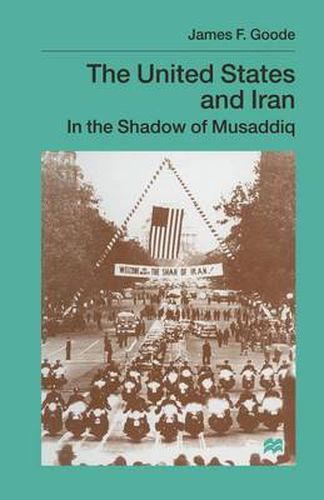Readings Newsletter
Become a Readings Member to make your shopping experience even easier.
Sign in or sign up for free!
You’re not far away from qualifying for FREE standard shipping within Australia
You’ve qualified for FREE standard shipping within Australia
The cart is loading…






This title is printed to order. This book may have been self-published. If so, we cannot guarantee the quality of the content. In the main most books will have gone through the editing process however some may not. We therefore suggest that you be aware of this before ordering this book. If in doubt check either the author or publisher’s details as we are unable to accept any returns unless they are faulty. Please contact us if you have any questions.
This study presents an analysis of US-Iranian relations in the twentieth century, with particular attention to the crisis over nationalization of British oil interests at midcentury. As such, it focuses on the career of Muhammad Musaddiq, who struggled during those years to free his country from foreign influence, and whose memory continued to haunt bilateral relations with the United States up to the Iranian revolution. Throughout, it examines Anglo-American views of Iranians (and by implication of other non-Westerners) which affected - and still affect - the conduct of international relations.
$9.00 standard shipping within Australia
FREE standard shipping within Australia for orders over $100.00
Express & International shipping calculated at checkout
This title is printed to order. This book may have been self-published. If so, we cannot guarantee the quality of the content. In the main most books will have gone through the editing process however some may not. We therefore suggest that you be aware of this before ordering this book. If in doubt check either the author or publisher’s details as we are unable to accept any returns unless they are faulty. Please contact us if you have any questions.
This study presents an analysis of US-Iranian relations in the twentieth century, with particular attention to the crisis over nationalization of British oil interests at midcentury. As such, it focuses on the career of Muhammad Musaddiq, who struggled during those years to free his country from foreign influence, and whose memory continued to haunt bilateral relations with the United States up to the Iranian revolution. Throughout, it examines Anglo-American views of Iranians (and by implication of other non-Westerners) which affected - and still affect - the conduct of international relations.